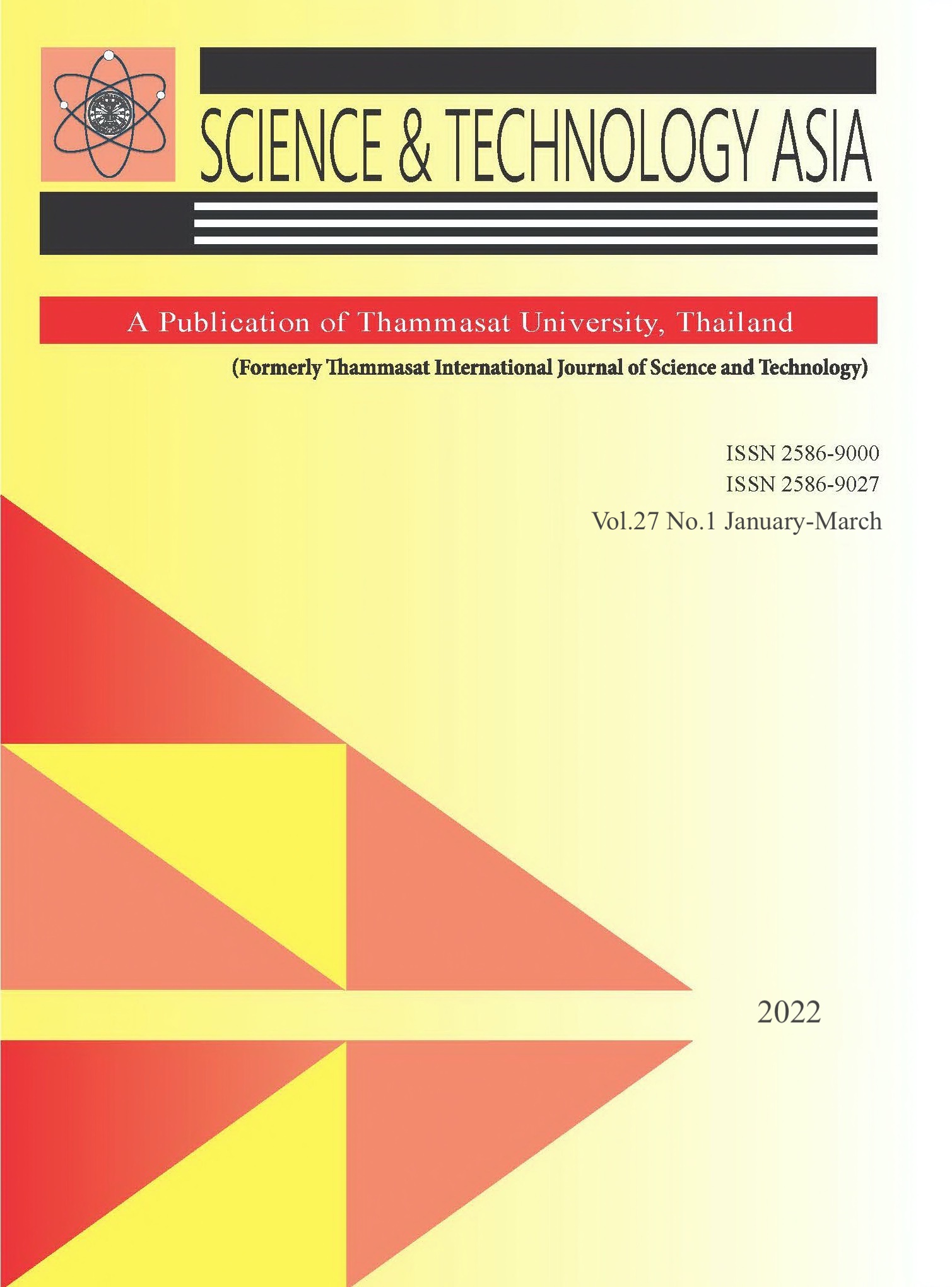Preservative Potential of Thai Herb Extracts Combined with Bacteriocin from Bacillus velezensis BUU004 for Controlling Food Spoilage and Pathogenic Bacteria in Dried Crushed Seasoned Squid
Main Article Content
Abstract
This study aimed to develop a novel biopreservative to replace chemical preservatives currently used in Thai dried seafood products. A mixed extract of chili spur pepper and lemongrass was evaluated for its preservative potential in dried crushed seasoned squid. The mixed extract (80 mg/ml) showed weak activity against bacteria, lowering the total viable count (TVC) measured in dried squid during a 28-day storage at room temperature; although, at 160 and 320 mg/ml, the applications of mixed extract demonstrated a similarly strong inhibitory efficacy to each other, but higher than that of the 80-mg/ml mixed extract. However, some spoilage from Bacillus species and fungi were found in the treated samples. Then, a novel preservation technology was developed by incorporating the mixed herb extract (160 mg/ml) with a semi-purified preparation of bacteriocin from Bacillus velezensis BUU004 (SPP-BV). A significant (p<0.05) decrease in TVC was observed in the herb-SPP-BV-treated squid, along with the absence of fungal and staphylococci growth during a 28-day refrigerated storage. The novel combination was also investigated for its inhibitory activity against the foodborne pathogen, Bacillus cereus, in dried squid using the MPN method with results showing a substantial reduction in B. cereus numbers during a 28-day refrigerated storage. The mode of action of this novel combination was pathogen cell lysis due to ruptured cell walls, observed by SEM. Finally, administration of the novel preservative cocktail had no degenerative effects on the sensory qualities (color and odor) of the squid. These results suggest that the mixed herb extract combined with SPP-BV has promising potential as an alternative food preservative for controlling food spoilage and pathogenic bacterial growth, and improving Thai dried seafood product quality.
Article Details

This work is licensed under a Creative Commons Attribution-NonCommercial-NoDerivatives 4.0 International License.


